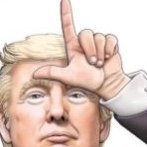-
Recently Browsing 0 members
- No registered users viewing this page.
Announcements
-
Topics
-
Latest posts...
-
121
Trump vs. Taylor Swift: A Battle He’s Bound to Lose
Voting democrat is voting in more muslims into their country like how Europe has. Any jewish americans that havent figured it out have whats coming to them -
121
Trump vs. Taylor Swift: A Battle He’s Bound to Lose
A flame and the off topic bickering that followed it have been removed -
46
Thai Khmer - is it alive anywhere in South Isaan?
All our older family are fluent in Khmer, not the you ones so much and the even younger ones are worse. I wonder what posters think about it's future, will it slowly die out? Should be taught in schools in khmer speaking regions is my opinion. -
60
Baht's Biggest Surge Since 1998 Poses Risk to Tourism And Exports
Diesel was capped at 30 whilst the rest were allowed to increase and reached over 40. The government then released the diesel cap and increased it slowly until it's where it is today. Diesel has been artificially low for a long time, in order to keep transportation costs from climbing. -
121
Trump vs. Taylor Swift: A Battle He’s Bound to Lose
We are all waiting on you to come to your senses , your so far up Trumps Diaper we will have to grab you by your high heels -
121
Trump vs. Taylor Swift: A Battle He’s Bound to Lose
Sure. Jewish Americans are far better educated than average and far more successful economically, but they don't understand what's in their best interests. Makes sense. In Oppositeworld. -
2
Are these people stark raving mad?
Trump didn't actually say that , but , who cares about honesty these days ? -
121
Trump vs. Taylor Swift: A Battle He’s Bound to Lose
300,000 registered to vote after her endorsement, do you even do any fact checking, you just listen to Faux and spout all day -
29
-
74
Melania Trump Defends Nude Modeling: A Celebration of the Human Form
It's not just separate bedrooms. It's separate wings. Given that it's separate wings in Mar a Lago, that's quite a lot of distance between them. She never has to run into him if she doesn't want to. And given how often she's been seen with him in public during his campaign, it's clear she doesn't want to. -
3
Parents Abandon Newborn Girl in Temple Bathroom Near Pattaya
How/why was the door locked from the outside ? who locked the door ? well at least this one was found alive. what a country this has become, dead babies, live babies, dead adults, injured adults turning up daily.....and Some cut into pieces. -
5,284
-
18
How often do you get your ACs cleaned?
If you are getting your Freon topped up, your AC has issues, it's a closed system. Freon should not be escaping. -
18
Father and Son Found Murdered in Pickup Truck in Kalasin's Rice Field
UPDATE Plan to Re-enact Double Murder by “Yod,” Former Molam Singer, Cancelled Due to Safety Concerns Authorities canceled the re-enactment of a brutal double murder involving "Yod," a former Molam singer, following safety concerns. The 20-year-old suspect, Chonlatee, had confessed to killing a father and son, both cattle traders, but declined to participate in the re-enactment, fearing for his safety as angry relatives of the victims gathered at the police station, seeking vigilante justice. The incident began on September 19, 2024, when the bodies of 62-year-old Rian and his 32-year-old son Piyapong were found in the back of a pickup truck abandoned in a rice field in Kalasin Province. The two had been missing after attending a cattle market in Maha Sarakham. Their deaths were quickly linked to Chonlatee, a former Molam singer who had transitioned into cattle trading. He was taken into custody and, after hours of questioning, admitted to the killings. The situation intensified at the police station when Piyapong’s wife, Lalitta, slapped Chonlatee during the investigation. Despite tight security, the victims' relatives gathered outside the station, shouting curses and threatening violence, prompting police to consider the suspect’s safety. Kalasin Provincial Police Commander, Pol. Maj. Gen. Triwit Sriprapa, explained that Chonlatee’s fear of retaliation led to the re-enactment being called off. Instead, the suspect was immediately transported to the Kalasin Provincial Court for detention. According to the police, Chonlatee had been motivated by greed. On September 18, he encountered the father and son at the cattle market, observed them making a significant sale, and devised a plan to rob them. He lured them to a remote area, under the pretense of inspecting cattle, before fatally shooting both men. Chonlatee stole 31,000 baht in cash and a gold necklace, which he later used to repay debts and gave to his wife for safekeeping. Chonlatee faces multiple charges, including premeditated murder, armed robbery resulting in death, illegal possession of a firearm, and concealment of the bodies. Lalitta, Piyapong’s widow, expressed shock at the brutality, stating that despite knowing Chonlatee through their shared profession, she never expected such violence. She has called for the death penalty to be imposed on the man who took her husband and father-in-law's lives. The investigation continues, with police seeking to recover further evidence linked to the crime, including the weapon used, which Chonlatee claims to have discarded in a nearby pond. -- 2024-09-21 RPReplay_Final1726886951.mp4 -
121
Trump vs. Taylor Swift: A Battle He’s Bound to Lose
Exactly. Hard to come to terms with the fact you are voting against your best interests. Hopefully they come to their senses- 1
-

-
.png.3b3332cc2256ad0edbc2fe9404feeef0.png)












Recommended Posts
Create an account or sign in to comment
You need to be a member in order to leave a comment
Create an account
Sign up for a new account in our community. It's easy!
Register a new accountSign in
Already have an account? Sign in here.
Sign In Now